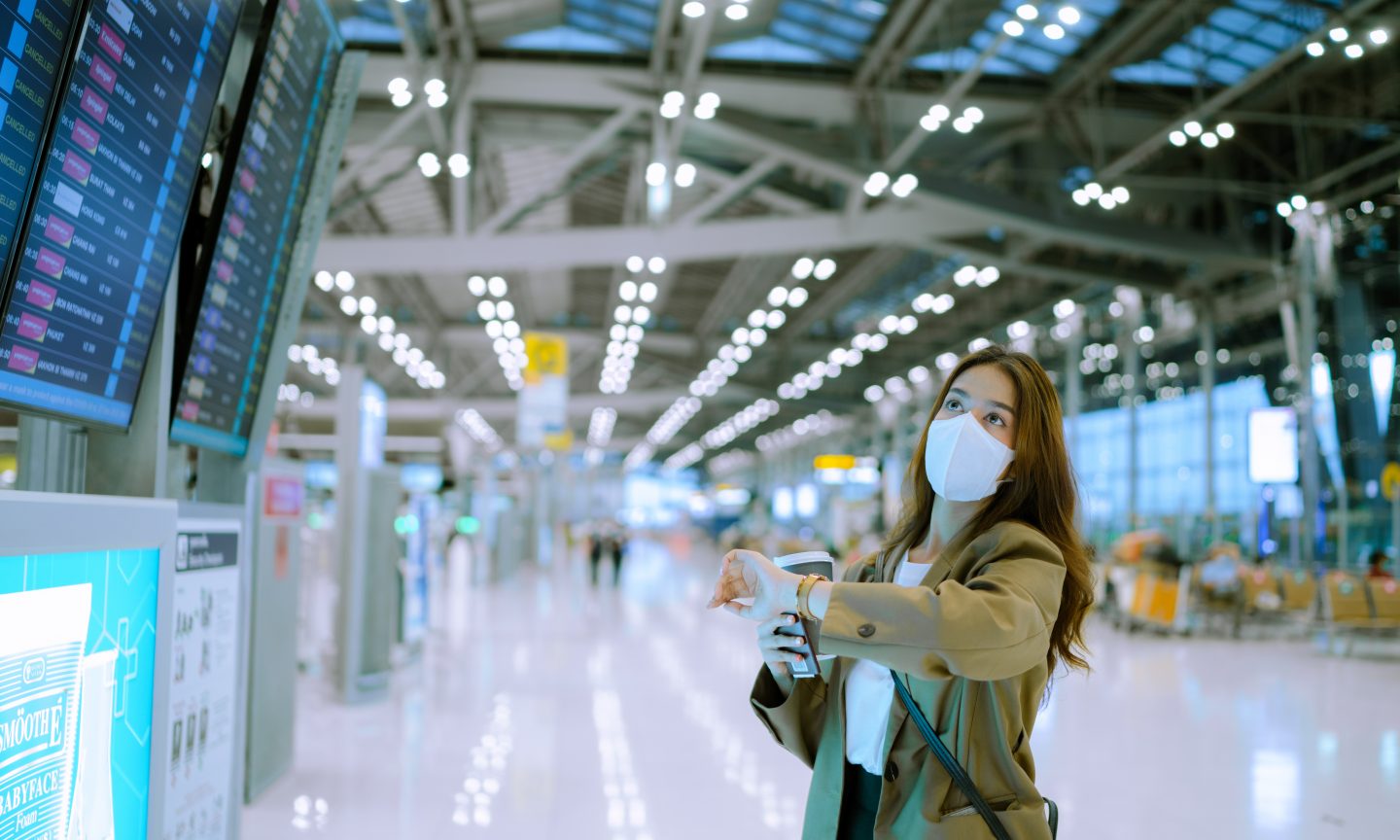As countries rush to impose travel bans to manage the spread of the omicron COVID-19 variant, some travelers have been left stranded. Meanwhile, those with trips planned might not be able to take off.
Here’s what you need to know about traveling and the omicron variant.
Review border closures and entry requirements
As of Nov. 29, the U.S. has restricted travel from Botswana, Eswatini, Lesotho, Malawi, Mozambique, Namibia, South Africa and Zimbabwe due to concerns over the new variant. While these travel restrictions do not apply to U.S. citizens, lawful permanent residents and certain other categories of travelers, some airlines are canceling flights from those countries anyway.
Many countries have imposed even stricter restrictions than the U.S. While some have banned inbound flights from specific countries, others, including Morocco, Japan and Israel, have temporarily banned international travel — with few exceptions — entirely.
Even if it’s just a layover, check the border closures and entry requirements at every stop on your trip. You can typically find a country’s most up-to-date travel policies by checking with the government’s travel and tourism office.
Understand your flight’s change and cancellation policies
In 2020, many major airlines introduced flexible and generous change and cancellation policies, and they’ve largely held on through 2021 (and likely will continue into 2022, too). Check with your air carrier, as you may be able to get a voucher toward a future flight and sometimes an outright refund if you opt not to travel — often no matter the reason.
Read the fine print. Policies on low-cost or basic economy fares tend to be less generous, and sometimes even the flight credits have tight expiration dates.
For flights specifically between the U.S. and many southern African countries, many airlines are rolling out special change policies, many of which leave you with tough, last-minute decisions to make.
For example, if you originally booked a flight for Johannesburg, South Africa, between Nov. 27 and Dec. 12, Delta is waiving the fare difference should you decide to fly elsewhere. However, you must take the new flight by Dec. 12, which doesn’t give you a lot of time to find a new destination. If you opt to fly after Dec. 12, Delta may charge you for the fare difference, which can be especially hefty if you’re booking last-minute.
Purchase ‘Cancel For Any Reason’ travel insurance coverage
Whether a prebooked trip is disrupted by a travel ban or you’re feeling more travel hesitancy now that omicron is in the lexicon, you might decide to cancel your trip altogether.
You can protect the money you shell out for a trip in advance with the right travel insurance coverage.
But sometimes even the biggest travel insurance policies won’t cover all omicron-related challenges. For example, while AIG’s Travel Guard insurance plan covers you in the event you get sick from COVID-19, it explicitly does not cover travel restrictions or travel warnings issued by any governmental body or health authority.
In that case, you’d need to have purchased Cancel For Any Reason coverage, which can get you a partial or full refund, no matter why you choose not to travel.
Have a quarantine plan
If you’re traveling abroad and returning to the U.S., you need proof of a valid, negative COVID-19 test to return — even if you’re vaccinated.
There’s still a chance you can get a COVID-19 breakthrough case while vaccinated, according to the Centers for Disease Control and Prevention. If you do, understand what quarantining for more than a week in a foreign country might entail. Plan where you might be able to stay. Make sure you’ve packed enough for the additional nights, including extra prescription medications or perhaps a laptop to help pass the time.
The bottom line
Given the ever-changing COVID-19-related travel restrictions, taking trips in 2021 is complicated. If you’re set on international travel, understand what you’re in for: potential lockdowns, canceled flights, lost money from upfront bookings, and the risk of having to quarantine. And even domestic travel might feel precarious for those uneasy about the emergence of omicron.
No matter where you’re headed, have a plan. And these days, it doesn’t hurt to also have a solid backup plan.
This post was originally published on Nerd Wallet



